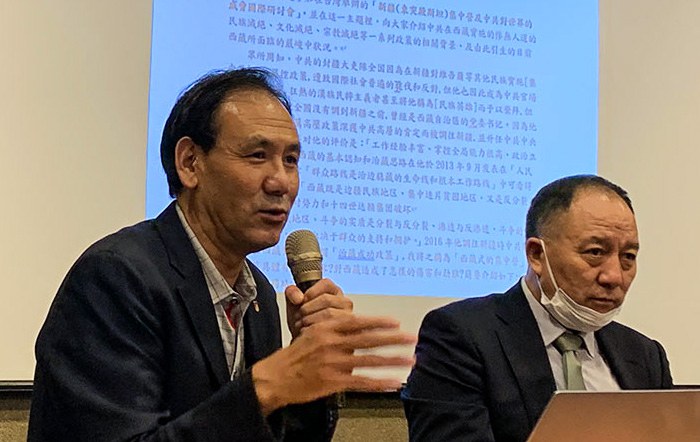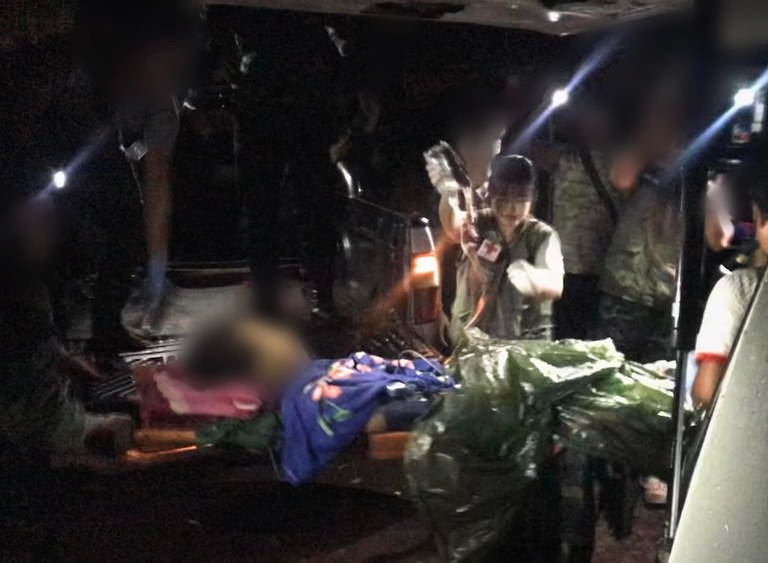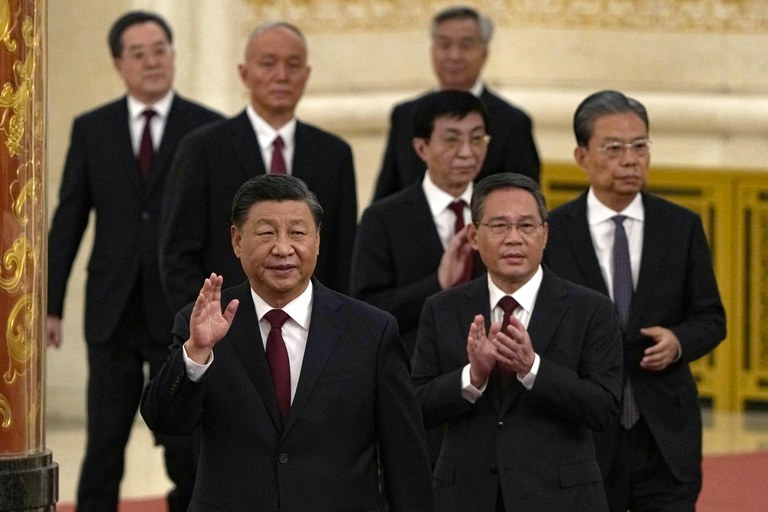Protests spread in Lhasa over COVID-19 restrictions
Protests over COVID-19 restrictions in the Tibetan capital Lhasa spread to at least four different areas of the city Thursday, prompting “scuffles” with authorities in some cases, sources told Radio Free Asia, as ethnic Chinese migrant workers demanded permits to return home from the region. RFA was able to confirm that many of the protesters were ethnic majority Han Chinese migrant workers who likely obtained permission to reside in Lhasa for jobs that pay daily wages. Sources in the city, who spoke on condition of anonymity out of security concerns, said that the migrant workers have been demanding that local authorities issue them permits to return to their homes in eastern China because they have been unable to earn a living during the nearly three months of lockdown in the city. In footage from one video obtained late on Wednesday, a man claiming to be a police officer pleads with protesters in Mandarin Chinese to return to their homes, and tells them their concerns have been relayed to senior officials. “Please return to your homes. Why? If you [don’t] go back and block up this area, what might happen? You’ll infect each other,” the apparent officer says. “We’ve already reported to the higher ups, okay? Please go home.” “We understand your pain. We’re going to make a report soon,” he goes on to say. ”Please everybody understand, we will report to the relevant authorities.” On Wednesday, RFA Tibetan reported that scores of people had taken to the streets in what appeared to be Chengguan district’s Chakrong area, in eastern Lhasa, as well as the Payi area of the city, based on video obtained by sources in the region. By Thursday, protests had spread to include the districts of Lhalu and Kuang Ye, sources told RFA, with newly obtained video footage showing crowds growing more restless. In one such video, protesters appear to engage in a yelling and shoving match with authorities, while in another, a group of people appear to push a large iron gate off of its hinges. Trying to contain Sangay Kyab, a Tibet expert based in Spain, told RFA that Chinese authorities likely did not resort to violence to crack down on the protests in Lhasa because they were related to COVID-19 restrictions, and because Beijing doesn’t want the situation to escalate. Sakar Tashi, a Belgium-based China and Tibet watcher, took it a step further, suggesting that authorities wouldn’t have responded as peacefully to a protest held exclusively by Tibetans. “Han people in Lhasa protested against the epidemic control policy. Tibetans are also involved,” he wrote in a post to Twitter. “Most who led & participated were Han – if it were Tibetans, it would have been bloodily suppressed long ago.” RFA was able to contact an officer with the Lhasa Public Security Bureau who insisted that no protest had taken place over the past two days. “There was no gathering, assembly or protest,” he said. “Everything is in an orderly manner. We did not arrest anyone.” When asked how many people were able to obtain permits to leave the region, the officer replied that “anyone who meets conditions can receive permits and leave Tibet freely.” When pressed further about the status of the protests, the officer said that “everyone is fine, everyone went home.” Other sources inside the city appeared more wary about discussing the incidents, including some who had provided RFA with updates on Wednesday. However, accounts provided to RFA by some Lhasa residents on Thursday appeared to confirm the officer’s explanation of events. Residents said that protesters dispersed after authorities agreed to process applications for Chinese migrant workers to return to their homes outside of the region. RFA was unable to independently verify whether such an arrangement had been made. COVID-19 restrictions Reports of the protests in Lhasa – believed to be the largest in the city in more than a dozen years – came days after the government of the Tibet Autonomous Region issued an Oct. 24 statement announcing that a harsh COVID-19 lockdown in Lhasa would be “loosened.” The lockdown in Lhasa began in early August as COVID-19 numbers there and throughout China continued to climb. Lhasa residents have said on social media that the lockdown order came without enough time to prepare, leaving some short on food, and making it difficult for those infected with the virus to find adequate treatment. Despite Monday’s announcement by authorities, residents of Lhasa told RFA on Thursday that the lockdown remains in effect and claimed even more stringent measures were being implemented. One video obtained by RFA appears to be taken inside a bus full of people who the narrator says are Tibetans being rounded up and taken to an undisclosed location. “Look, they are taking all these people who aren’t even sick,” a man’s voice says, urging viewers to “please share this on Douyin,” referring to a popular video-hosting website in China. Chinese state media had reported more than 18,000 cases of COVID-19 infection as of early October, with at least 60,507 people now held in quarantine in conditions described as harsh by sources inside the Tibet Autonomous Region. In a Sept. 26 statement, the Central Tibetan Administration – the Dharamsala, India-based Tibetan government-in-exile – said Chinese authorities are holding Tibetans in quarantine camps without adequate food, water or medical care. Camp managers have routinely placed infected persons with others still uninfected, resulting in a further spread of the virus, it said. Formerly an independent nation, Tibet was invaded and incorporated into China by force more than 70 years ago, following which the Dalai Lama and thousands of his followers fled into exile in India and other countries around the world. Beijing has accused the Dalai Lama of fomenting separatism in Tibet. Translated by Kalden Lodoe, Rita Cheng and Chase Bodiford. Written in English by Joshua Lipes.




